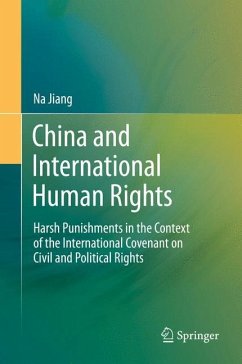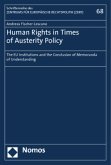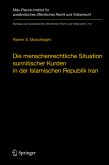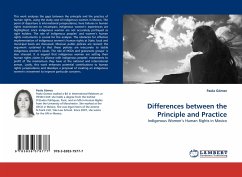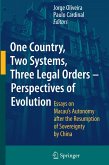This book is designed to introduce law students, legal actors and human rights activists, particularly participants in human rights dialogues with China, to the process and reality of a newly confident China's participation in the international human rights system, albeit with inherent challenges. From an international and comparative perspective, one of the key findings of the author's research is that progress towards human rights depends more on judges than on legislators. Chinese legislators have enacted a series of reforms in order to better protect human rights. Unfortunately, these reforms have not led to greater adherence to China's international human rights obligations in practice. The reforms failed because they have generally been misunderstood by Chinese judges, who often have a limited understanding of international human rights norms. Specifically, this book will examine how judicial misunderstandings have blocked reforms in one specific area, the use of severepunishments, based on international human rights theory and case studies and data analyses. This examination has several purposes. The first is to suggest that China ratify the ICCPR as the next step for its substantive progress in human rights and as a good preparation for its re-applying to be a member of the UN Human Right Council in the future. The second is to explain how judges could be better educated in international human rights norms so as to greatly reduce the use of severe punishments and better comply with China's human rights obligations. The third is to demonstrate how the international community could better engage with China in a manner that is more conducive to human rights improvements. The author's ultimate goal is to enhance dialogue on human rights in China between judges and the Chinese government, between Chinese judges and their foreign counterparts and between China's government and the international community.
Another significant aim ofthis book is to clarify the controversial question of what obligations China should undertake before its ratification of the ICCPR and to re-examine trends in its developing human rights policy after standing down from the Council in late 2012. The tortuous progress of China's criminal law and criminal justice reforms has confirmed that Chinese judges need further instruction on how to apply severe punishments in a manner consistent with international standards. Judges should be encouraged to exercise more discretion when sentencing so that penalties reflect the intent of relevant domestic laws as well as the international human rights standards enumerated in the ICCPR. In order to better educate and train judges, this book contains introductory chapters that examine the severe punishments currently available to Chinese judges from an international human rights perspective. To illustrate how Chinese justice currently falls short of international norms, this paper also examines several casesthat are considered to be indicative of China's progress towards greater respect for human rights and the rule of law. These cases demonstrate that China still has a long way to go to achieve its goals, at least before abolishing the death penalty, forced labor and torture.
Hinweis: Dieser Artikel kann nur an eine deutsche Lieferadresse ausgeliefert werden.
Another significant aim ofthis book is to clarify the controversial question of what obligations China should undertake before its ratification of the ICCPR and to re-examine trends in its developing human rights policy after standing down from the Council in late 2012. The tortuous progress of China's criminal law and criminal justice reforms has confirmed that Chinese judges need further instruction on how to apply severe punishments in a manner consistent with international standards. Judges should be encouraged to exercise more discretion when sentencing so that penalties reflect the intent of relevant domestic laws as well as the international human rights standards enumerated in the ICCPR. In order to better educate and train judges, this book contains introductory chapters that examine the severe punishments currently available to Chinese judges from an international human rights perspective. To illustrate how Chinese justice currently falls short of international norms, this paper also examines several casesthat are considered to be indicative of China's progress towards greater respect for human rights and the rule of law. These cases demonstrate that China still has a long way to go to achieve its goals, at least before abolishing the death penalty, forced labor and torture.
Hinweis: Dieser Artikel kann nur an eine deutsche Lieferadresse ausgeliefert werden.

